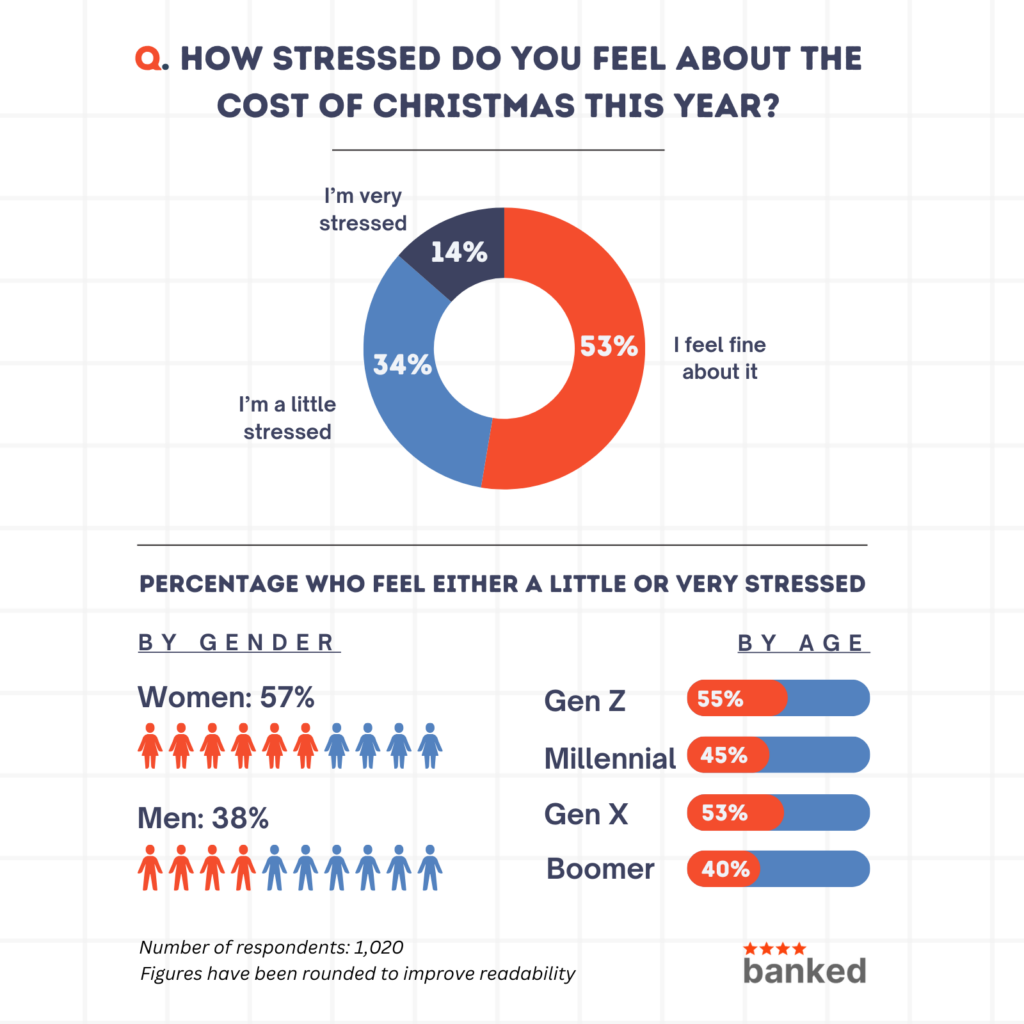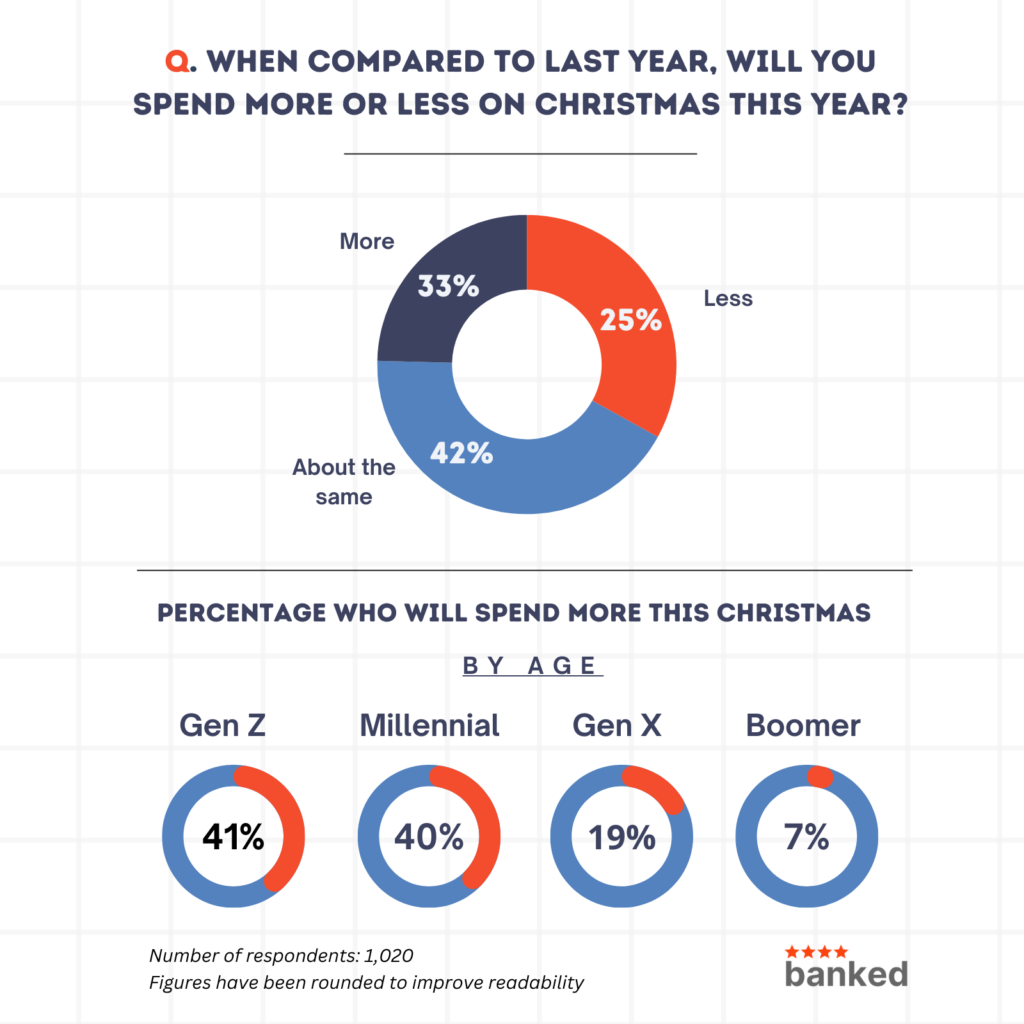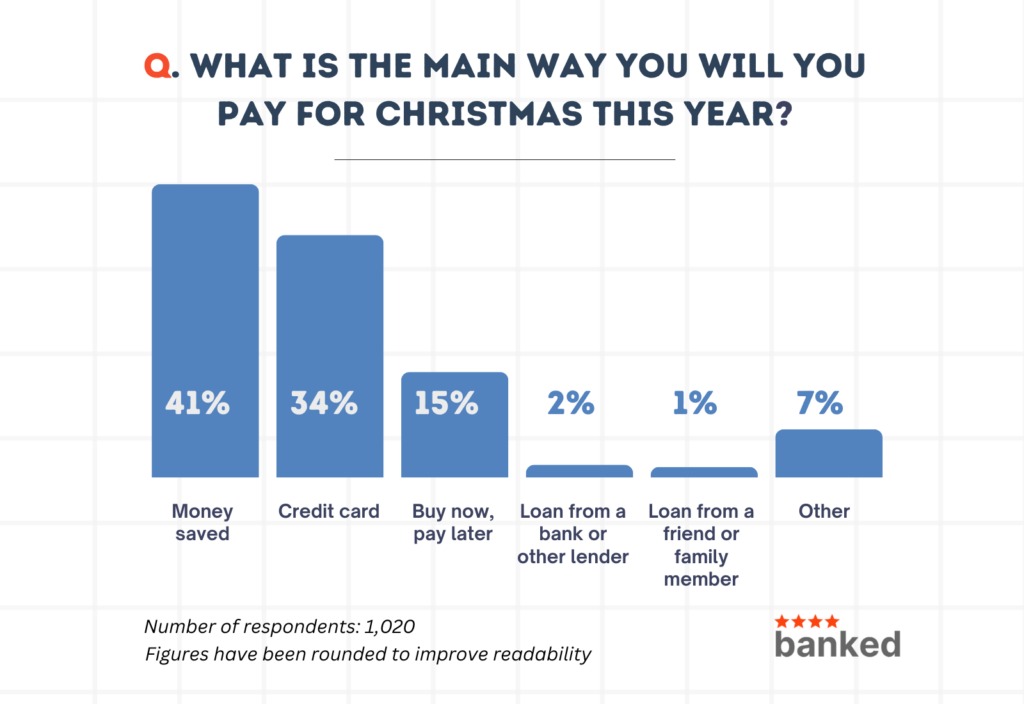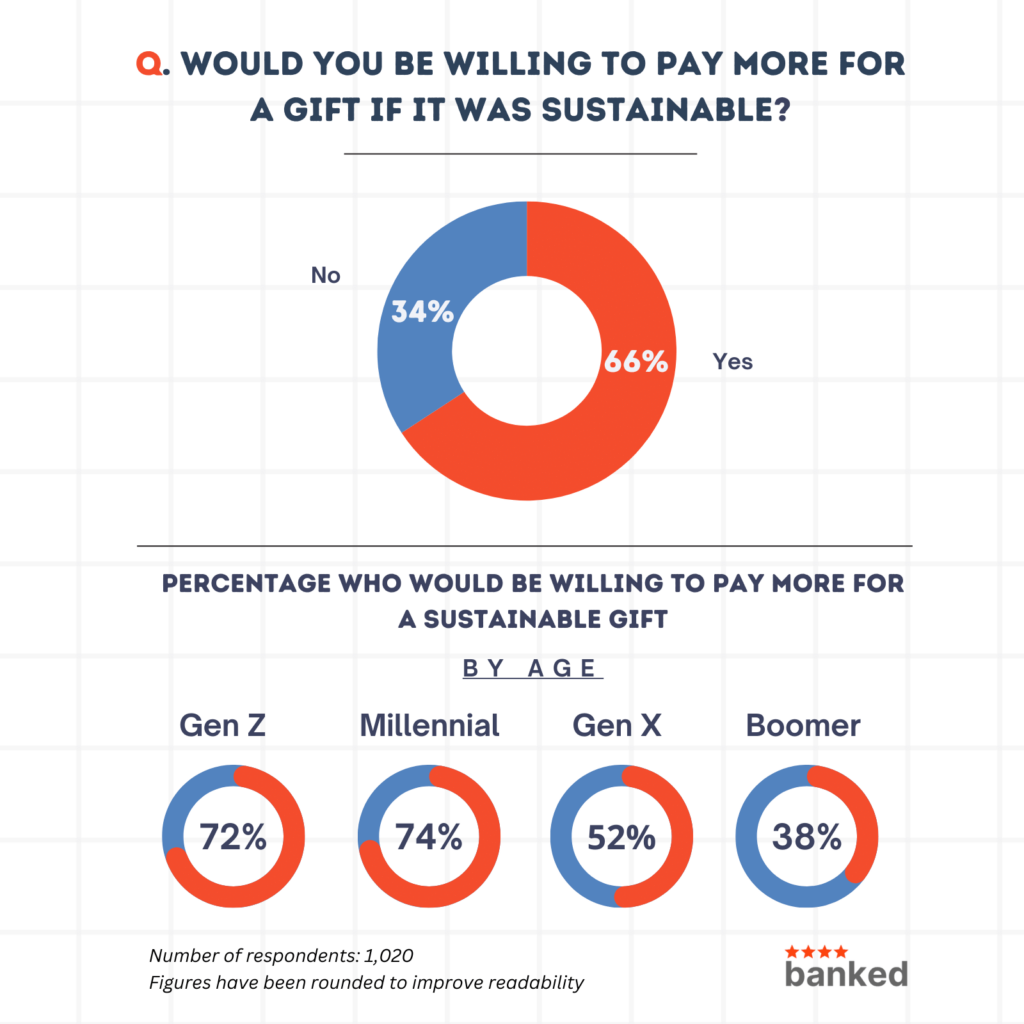Christmas Spending Survey 2023
More than 1,000 New Zealanders told us about their Christmas spending plans for our second annual report.

Key findings
- Money stress: More than half of women and young people feel a little or very stressed about the cost of Christmas, although stress levels have dropped since last year.
- Festive spending: A third of Kiwis expect to spend more on Christmas this year.
- Credit card Christmas: 34% of people will use a credit card as the main way they will pay for Christmas — a 14% increase from 2022.
- Sustainable gift giving: 66% of Kiwis would pay more for a sustainable gift. Younger generations are almost almost twice as likely to pay more for an eco-friendly gift than Baby Boomers.
Women and young people most stressed about the cost of Christmas
Overall, New Zealanders are feeling less stressed about the cost of this year’s Christmas when compared with last year.
48% of people say they feel either a little or very stressed about the cost of Christmas this year — a 12% decrease from the 60% who felt some level of stress last year.
But while people are feeling under less financial strain around the cost of Christmas overall, a majority of women and younger people are still feeling the pressure.
More than half of women (57%) reported feeling either a little or very stressed, compared with just 38% of men.
Gen Z is feeling the most stress of all the generations, with 55% reporting some level of stress about the cost of upcoming festivities. Baby Boomers are the most comfortable generation, with 40% feeling stressed to some degree.

A third of Kiwis will spend more this year
While there is hope inflation is finally easing, 33% of people still believe they will spend more on Christmas than they did last year.
42% say they will spend about the same as they did in 2022, while a quarter expect to spend less.
Younger Kiwis are the most likely to spend more this year. Of those in Gen Z, 41% think they will pay out more this year, followed closely by Millennials (40%).
Older generations will be more conservative, with 19% of Gen Xers and just 7% of Baby Boomers expecting to spend more on Christmas than they did last year.

More turning to credit to fund Christmas this year
Significantly more Kiwis will be using some form of credit to pay for Christmas this year.
In our 2022 survey, 56% of Kiwis used money they had saved as the main way they would cover the cost of Christmas. That figure drops to 41% this year — a decrease of 15%.
Credit card use will be much more common this year, with 34% planning to put most of the cost of Christmas on plastic. This is a jump of 14% over last year when just 20% said a credit card would be their main way to pay for the festive season.
Men are much more likely to put purchases on a credit card than women this year (41% vs 28%), while women are more likely to use buy now, pay later (BNPL) as their main way to pay for Christmas (17% vs 12%).

Two-thirds of Kiwis would pay more for a sustainable gift
As we become increasingly aware of the impact our consumption habits have on the environment, more of us have gained a preference for sustainable gift giving.
A large majority (66%) say they would be willing to pay more for a gift if it was sustainable, such as one that involved zero waste or was made from recycled materials.
That figure increases for younger people, with 72% of Gen Z and 74% of Millennials saying they would be happy to pay more for a sustainable present.
At 52%, Gen Xers are less willing to fork out more for a sustainable gift. Just 38% of Baby Boomers would be happy to pay a bit more for a greener gift.

- Gen Z: 18 to 26
- Millennial: 27 to 42
- Gen X: 43 to 58
- Baby Boomer: 59 to 77
